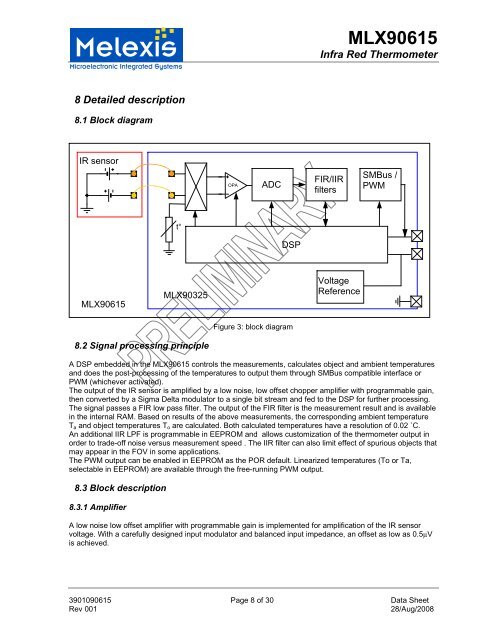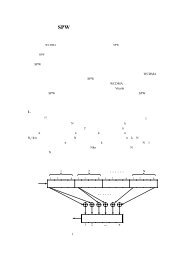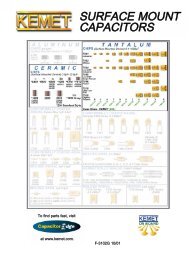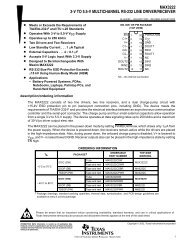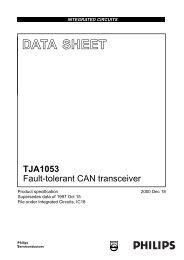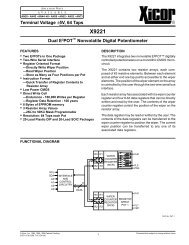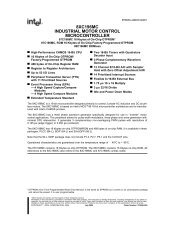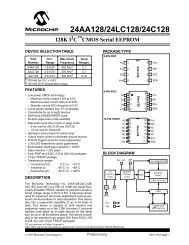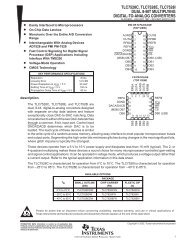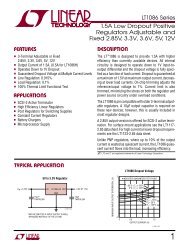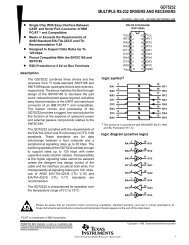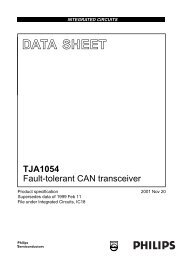MLX90615
MLX90615
MLX90615
- No tags were found...
Create successful ePaper yourself
Turn your PDF publications into a flip-book with our unique Google optimized e-Paper software.
<strong>MLX90615</strong>Infra Red Thermometer8 Detailed description8.1 Block diagramIR sensorOPAADCFIR/IIRfiltersSMBus /PWMt°DSP<strong>MLX90615</strong>MLX90325VoltageReferenceFigure 3: block diagram8.2 Signal processing principleA DSP embedded in the <strong>MLX90615</strong> controls the measurements, calculates object and ambient temperaturesand does the post-processing of the temperatures to output them through SMBus compatible interface orPWM (whichever activated).The output of the IR sensor is amplified by a low noise, low offset chopper amplifier with programmable gain,then converted by a Sigma Delta modulator to a single bit stream and fed to the DSP for further processing.The signal passes a FIR low pass filter. The output of the FIR filter is the measurement result and is availablein the internal RAM. Based on results of the above measurements, the corresponding ambient temperatureT a and object temperatures T o are calculated. Both calculated temperatures have a resolution of 0.02 ˚C.An additional IIR LPF is programmable in EEPROM and allows customization of the thermometer output inorder to trade-off noise versus measurement speed . The IIR filter can also limit effect of spurious objects thatmay appear in the FOV in some applications.The PWM output can be enabled in EEPROM as the POR default. Linearized temperatures (To or Ta,selectable in EEPROM) are available through the free-running PWM output.8.3 Block description8.3.1 AmplifierA low noise low offset amplifier with programmable gain is implemented for amplification of the IR sensorvoltage. With a carefully designed input modulator and balanced input impedance, an offset as low as 0.5µVis achieved.3901090615 Page 8 of 30 Data SheetRev 00128/Aug/2008


